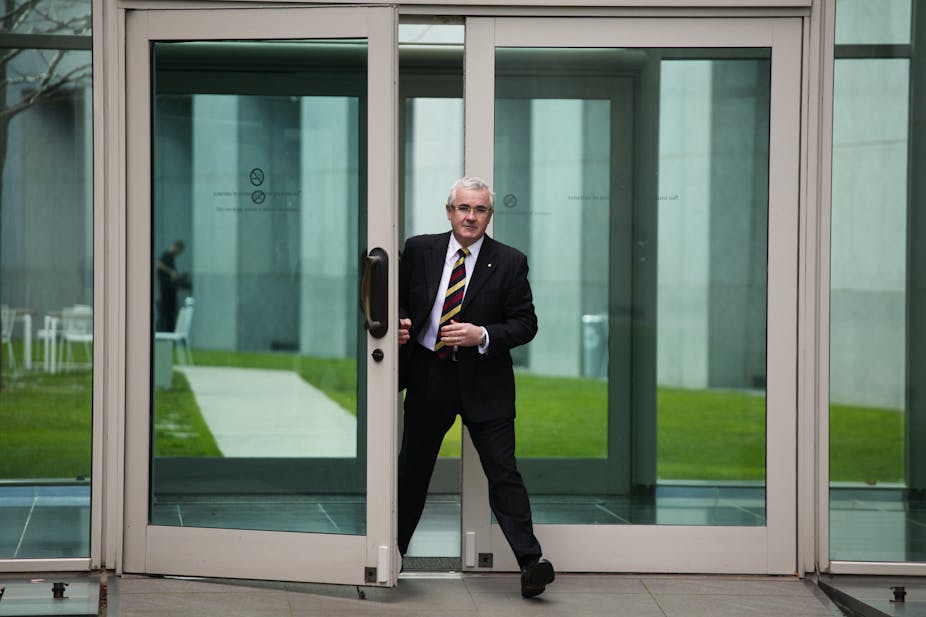Watered-down poker machine reforms designed to protect problem gamblers will go ahead after Tasmanian Independent MP Andrew Wilkie reluctantly gave his support to the Government legislation.
Mr Wilkie said he was disappointed with the bill, which will be introduced to parliament in the winter session, but decided to back it after the Government agreed to make minor amendments.
Under the changes, new and retrofitted machines will be equipped with technology that is able to switch to mandatory pre-commitment.
Mr Wilkie withdrew his automatic support for the Government in January when it reneged on a deal to introduce pre-commitment technology on all poker machines in the country by 2014.
The Government subsequently proposed a trial in the ACT and said that, pending the results, it would equip all poker machines with the technology in 2016. The technology would be voluntary, but could be switched to mandatory under the latest concession.
“I make this announcement reluctantly and I’ll give the Government’s bill reluctant support,” Mr Wilkie said.
“Frankly, the Government’s reforms are but a shadow of the reforms that were agreed after the 2010 federal election between the Prime Minister and myself.
"But it’s the best thing on the table right now and a step in the right direction, so I will support it.”
Mr Wilkie said it would be “historic for a federal government to, for the first time, intervene in the regulation of poker machine gambling in Australia and I think this is a very important precedent.”
Charles Livingstone, a Senior Lecturer in Health Social Science at Monash University, said the reforms were “at best a very modest step forward, but I think they are outweighed by the fact they delay serious poker machine reform by any number of years.
"For me the issue is: Does it actually change anything at the coalface? And the answer is: No, it doesn’t.
"It does implement a program of voluntary pre-commitment, but the research on that shows overwhelmingly that it’s ineffective, that the people who most need to use it don’t use it, and that it is very easily circumvented by almost everyone. The take-up rate of voluntary pre-commitment is very low, and it certainly won’t be taken up by those people who most need the helping hand the pre-commitment system would give them.”
The bill could struggle to pass the Lower House, Dr Livingstone said. The Coalition has voiced opposition to the reforms, and the Greens have called the bill a “wasted opportunity” and said they will not support it.
“The other issue that’s important to remember is that this government will not be the government that implements the reforms, if indeed there is a trial and if indeed that trial does produce irrefutable evidence - which is another question - it will be up to another government to implement it,” he said.
“The Liberal party has said that it won’t introduce mandatory pre-commitment at all, so forget about that. And this Labor government was very susceptible to pressure from the gambling lobby when it announced its deal with Wilkie, and it backed down having been attacked by the cashed-up clubs.
"It’s unlikely that it would behave any differently if it did come to the point of deciding that mandatory pre-commitment was a good idea. So it’s unlikely to lead to switching on mandatory pre-commitment, which is the only measure that might be effective in helping problem gamblers.”

